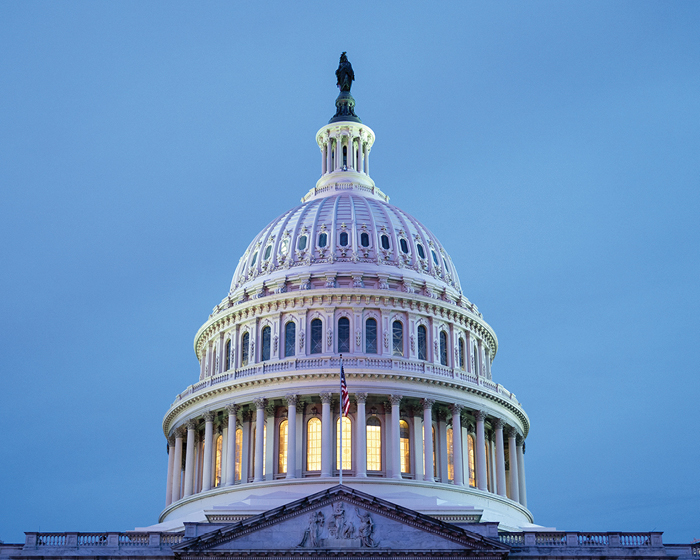Key Takeaways
- A week after the tax overhaul legislation was signed, President Trump issued an executive order promising a hard-line approach to energy tax credits.
- The order could signal that the administration hopes to use its own authority to roll back credits the law left in place.
- If Treasury follows through, it could have far-reaching impacts.
- The tax bill could provide a boost to low-income housing.
- The tax exemption for tips is one of the bill best-known provisions, but its impact is relatively small.
The “One Big Beautiful Bill Act” was signed a week ago, but implementation has already begun.
President Trump signed an executive order Monday promising to “build upon and strengthen the repeal of, and modifications to, wind, solar, and other ‘green’ energy tax credits in” the new tax law, and vowing to “strictly enforce” the repeal and accelerated phase-outs of credits enacted by the 2022 Inflation Reduction Act.
The OBBB repealed outright credits for electric vehicles, and scaled back many others, while also creating new requirements against funding or assistance from “foreign entities of concern” that could be difficult for many taxpayers to follow. It wasn’t a complete repeal of the IRA, but it went further than some of the defenders of the credits, even Republicans, were hoping for.
Trump’s executive order could be little more than rhetoric touting what was passed in the law. But it could also signal that the administration expects to take a hard-line approach to what energy credits are left–including to review existing guidance from the U.S. Treasury Department that taxpayers have come to rely on.
For instance, the OBBB bars taxpayers from using clean electricity production or investment credits under Sec. 45Y or Sec. 48E for wind or solar projects which begin construction more than 12 months after the law was enacted. Trump’s order mandates that Treasury ensure those rules aren’t circumvented, “including by preventing the artificial acceleration or manipulation of eligibility and by restricting the use of broad safe harbors unless a substantial portion of a subject facility has been built.
Trump also ordered Treasury to take “prompt action” to carry out complex new restrictions on “material assistance” from “foreign entities of concern,” which include companies from countries such as China or Iran.
Given some of the grey areas in both the OBBB and pre-existing law in these areas, Trump’s executive order could have far-reaching implications.
“While additional guidance on the FEOC provisions is welcomed for planning purposes, scrutinizing long standing beginning of construction guidance may have impacts that extend beyond solar and wind projects,” said Colette Gagnet, director of energy tax credits and incentives at Eide Bailly.
How far to go in rolling back the IRA’s energy credits, which have boosted manufacturing projects in many Republican districts, proved to be one of the most divisive issues during passage of the OBBB. It could also be a key issue in its implementation, as well.
Recent Tax Pieces:
Trump Order On Solar, Wind Credits Puts Industry On Heels – Kat Lucero, Law360 Tax Authority ($):
Trump Tax Law Is Surprise Boon for Affordable Housing Creation – Emily Flitter, Bloomberg Tax ($):
The GOP plan to make EVs but not sell them – David Ferris, Politico:
That’s one way to make sense of the EV provisions in President Donald Trump’s “big, beautiful bill,” which took every incentive that made it easier to buy an electric vehicle and threw them in the wastebasket. Analysts expect sales of battery-powered cars and trucks to drop sharply after September, when the new law phases out Biden-era tax credits worth up to $7,500 for buyers of new and used EVs.
“It’s a major blow to the future of the clean energy industry in the U.S.,” said Jay Turner, a professor at Wellesley College in Massachusetts who maintains a database of U.S. battery and EV investments.
Democrat’s Effort to Roll Back Gambling Deduction Cap Fails – Kate Lobosco, Tax Notes ($):
The 90 percent cap on the deduction is set to begin in 2026 and is expected to raise $1.1 billion in tax revenue over the next decade, according to an estimate (JCX-35-25) by the Joint Committee on Taxation.
Trump Promised ‘No Tax on Tips.’ Then Came the Fine Print. – Josie Reich and Richard Rubin, The Wall Street Journal:
The cut could save some service workers thousands of dollars a year in federal taxes.
Make a habit of sustained success.



